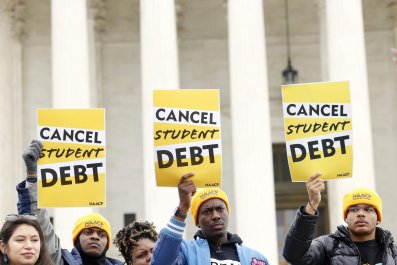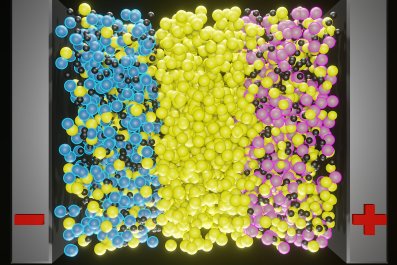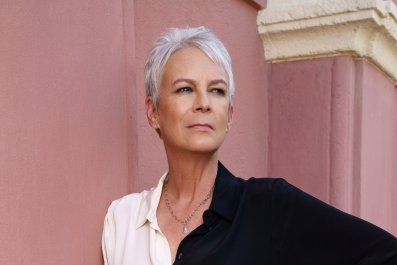A quick glance at Billboard's Country Music charts might suggest the genre is a bastion for white, cisgender men and conservatives without any room for LGBTQ+ people, especially transgender musicians, but nothing could be further from the truth.
Not only do transgender country music artists exist, but they are thriving even as some claim the political and cultural climate in the U.S. increasingly places a target on their backs.
Musician Eli Conley ran a queer country night in San Francisco where "so many people could be unapologetically queer, but also unapologetically into country music because I think a lot of times their idea is that country music isn't for us," because, for many, it's associated with the rural south.
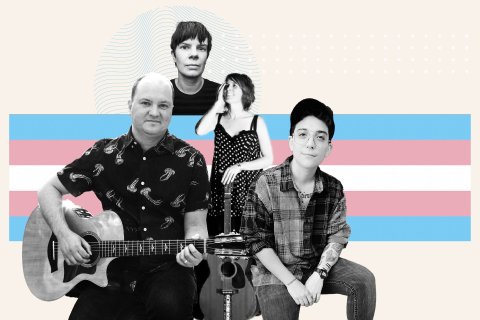
He told Newsweek people were "explicitly looking for" queer country music and that was better than him "coming in the back door and saying I'm a trans guy doing country or folk music and having people look at me like I have two heads."
But what does it matter if transgender people have a seat at the country music table? For starters, it is one of the most profitable genres in the U.S. earning about $4 billion in revenue annually but has also been at the center of the cultural war against transgender people.
This year has been a record-breaker for anti-LGBTQ laws being introduced in state legislatures across the country— more than 500 and counting— so much so, that the Human Rights Campaign declared a "state of emergency" for LGBTQ people. Almost half of those introduced bills target transgender people including access to often life-saving and gender-affirming care for minors, access to sports, dictating which bathroom they can use, and in Kansas, making it mandatory their driver's license and birth certificate match the gender they were assigned at birth.
"But in this moment it feels incredibly meaningful to me to be countering this backlash and talk about it on stage...and to be bold and take a stand to say, 'We're not going to back down, we're not going to go backwards.' I'm really thankful to be in that world when we are very clearly under attack," Conley said.
It also has not helped that many major country music stars joined in an outcry against beer brand Bud Light after it partnered with TikTok star Dylan Mulvaney. Conservatives have participated in a national boycott of Bud Light and its parent company Anheuser-Busch since March when the sent the transgender influencer some commemorative, not-for-public sale beer cans with her face on them to celebrate the one-year anniversary of the start of her gender-affirming transition.
Country rocker Kid Rock was one of many musicians to denounce the collaboration, going so far as to shoot up cases of the beer and declare he would never sell it again at his Nashville bar.
"Grandpa is feeling a little frisky today. Let me tell you as clear and concise as possible. F*** Bud Light and f*** Anheuser-Busch," Kid Rock shouted after shooting the Bud Light cases while wearing a MAGA (Make America Great Again) baseball cap.
It may seem like a sort of cognitive dissonance that there are so many transgender, non-binary, gender non-conforming, queer and other LGBTQ+ people attracted to country music as artists and fans, but for Ryan Cassata, it makes complete sense.
"Country music, and that includes Americana and folk music, came from the blues, and the blues came from slave songs, so it's always been a form of protest at its root and a form of empowerment, a way of healing and handling extreme turmoil," Cassata told Newsweek.
"And then at some point, conservative white men took over the genre. But there's always been people with acoustic guitars protesting the government...and oppression forever. So for me, it's very natural.
"The mainstream has given [trans people in country music] a contradiction feel, but I think it's a contradiction to be racist and be involved in popular music knowing where popular music came from."
It's not like queer and transgender country music exists on the fringe of the industry operating in its own bubble either. Cassata was the first openly trans musician to play on the Vans Warped Tour and singer/songwriter Allison Russell has been nominated for not only one but three Grammy Awards.
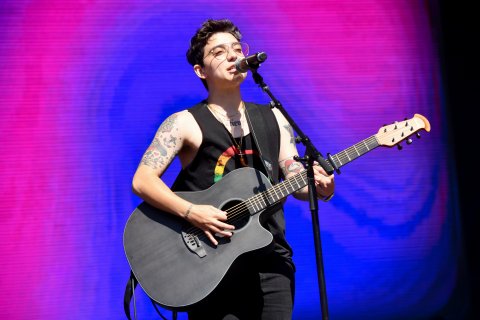
There have been plenty of other LGBTQ+ trailblazers who helped break down misconceptions they existed on the periphery of the genre and that country music was for white conservatives only. Gay artist Lil Nas X's "Old Town Road" has sold more than 18 million copies worldwide making it one of the best-selling songs of all time. Its remix even featured country music icon, Billy Ray Cyrus.
Brandi Carlile has earned 26 Grammy nominations and has always used her platform to raise awareness of LGBTQ+ and women's rights.
For many artists, making country music was not only natural but came part in parcel with their transgender journey, especially for non-binary Canadian artist, Rae Spoon.
"One of my biggest things is that I don't think people should have to lose their entire lives to come out as trans," Spoon said, who grew up in a Pentecostal family in Grand Prairie, Alberta, and uses they/them pronouns.
Spoon started playing music straight out of high school, but it wasn't until they moved to Vancouver at age 19 that they discovered their love for country music and how the "symbolism was really interwoven into my life growing up in the prairie."
"That's when my connection to it became stronger, and then I simultaneously came out as trans," they told Newsweek.
Along with carving their own space in the country music scene, many transgender artists understand their work is also critical for other LGBTQ+ people.
Namoli Brennet has been touring the world for more than 12 years and agreed it was more important than ever to represent her community given the current political climate.
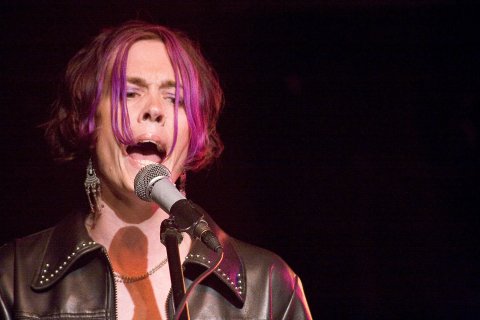
"You realize actually, people really need to hear the songs and need to be reassured that they're okay the way they are and that makes it hard because the world is definitely a less safe place as a trans person than it was even last year," she said.
Cassata agreed and explained he has received more hateful messages this year than ever before and needs to take extra safety precautions, such as a "buddy system" when using public restrooms.
"I can't be someone that gets on stage and has a platform and doesn't speak up about trans rights. I have to use my platform for my community," he said, but remained defiant he would continue to make protest music, and even though there are gigs he's afraid to play at, he still goes because, "I risk my life but I'm not going to be forced into a closet because of some conservatives in Florida, you know?"
One of Cassata's best-known songs, "Howl", even features the line, "I'm stuck writing protest songs because the government says I don't belong, what's a guy supposed to do, when my mere existence is political? I write love songs too. Is queer love still atypical?"
He told Newsweek, "I'm going to keep using my music as a message to put down transphobia."
But it's not all doom and gloom for these artists who have felt less safe than ever before because they know they are building a community and saving lives in the process.
"Hearing the impact that these songs have made and that they've saved people's lives or that they've got them through the school year has been the biggest blessing," Cassata explained. "And getting to play Pride festivals and be with a happy community, it just brings a lot of trans joy that is still very needed right now."
Conley used to worry about centering his transness too much in his music because his identity is more than his gender, but the tables have turned as the rhetoric against transgender people becomes more negative.
"But I've been shifting to talking more explicitly about being trans and the power we have as trans folks to be standing up and fighting back. And willing to be happy in our joy," he said.
He plans to "preach to the choir" to help build up the confidence of transgender people living in fear and has a strong message not only for them but also for the haters.
"We've always been here, we're always going to be here," Conley said.
Eli Conley's album, Searching For What's True is available from July 14.
Namoli Bennett's new album, Light It Up, will be released on October 23.
Ryan Cassata is currently working on a new album, but his charting album, Magic Miracle Mile, is available now on streaming platforms.
Rae Spoon's, Not Dead Yet, charting their journey as a trans person receiving treatment for cancer will be available in August.
Update 7/13/2023, 4:40 p.m. ET: This story has been updated to correct the spelling of singer/songwriter Allison Russell's name.


